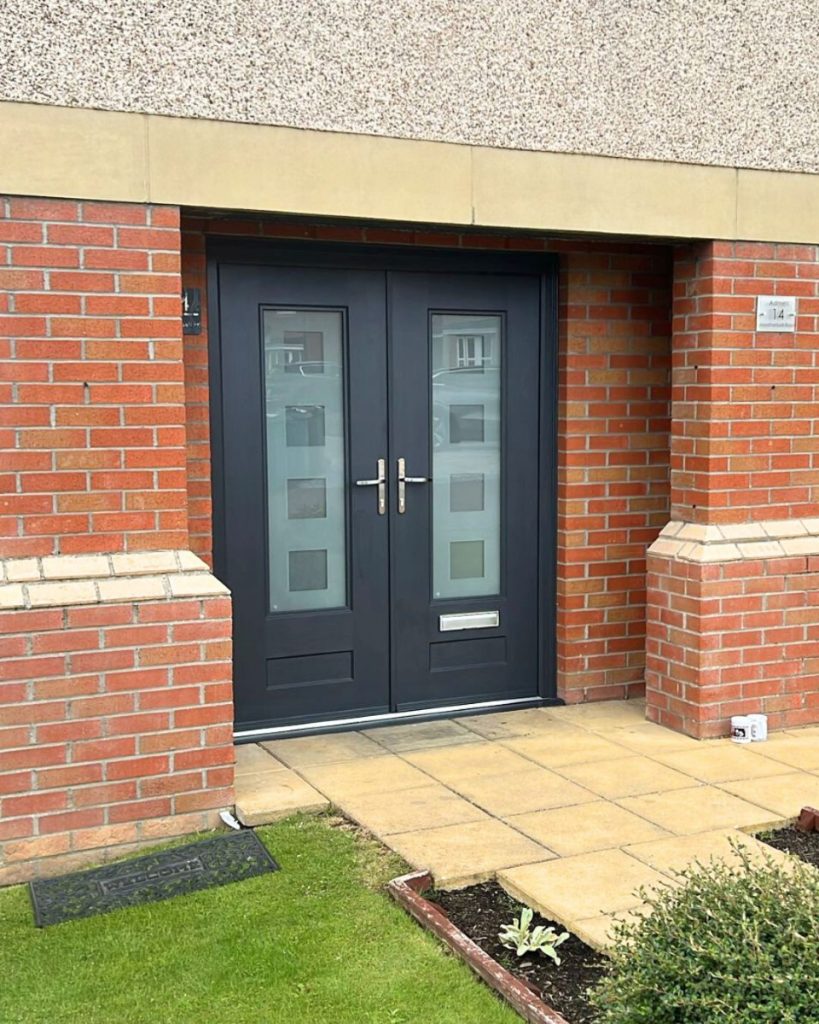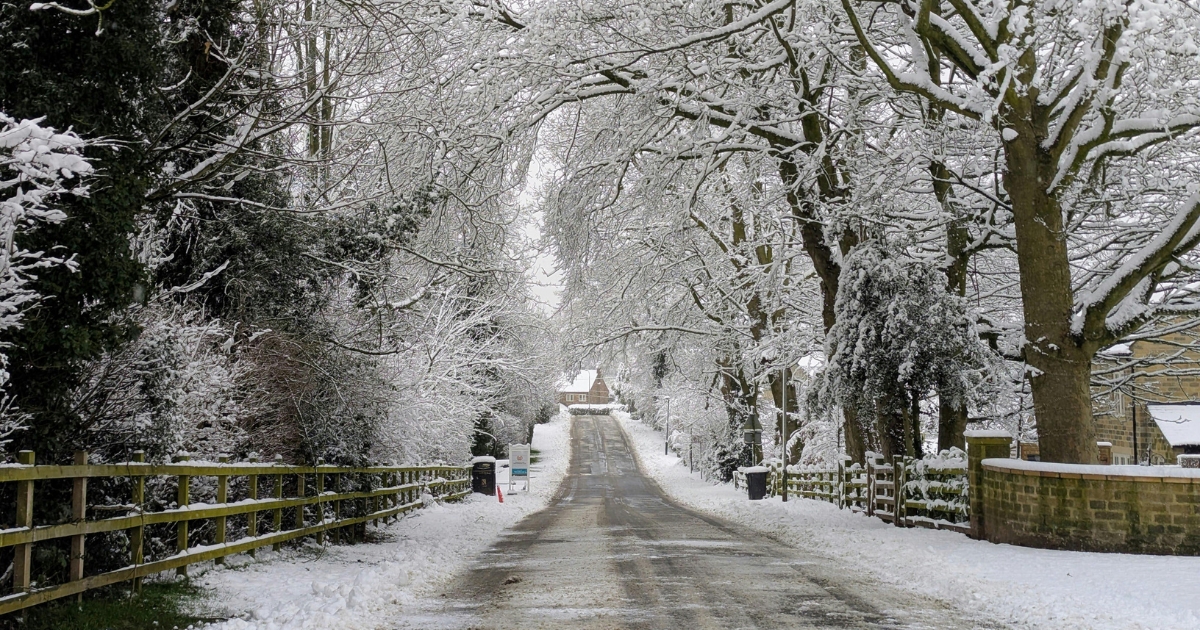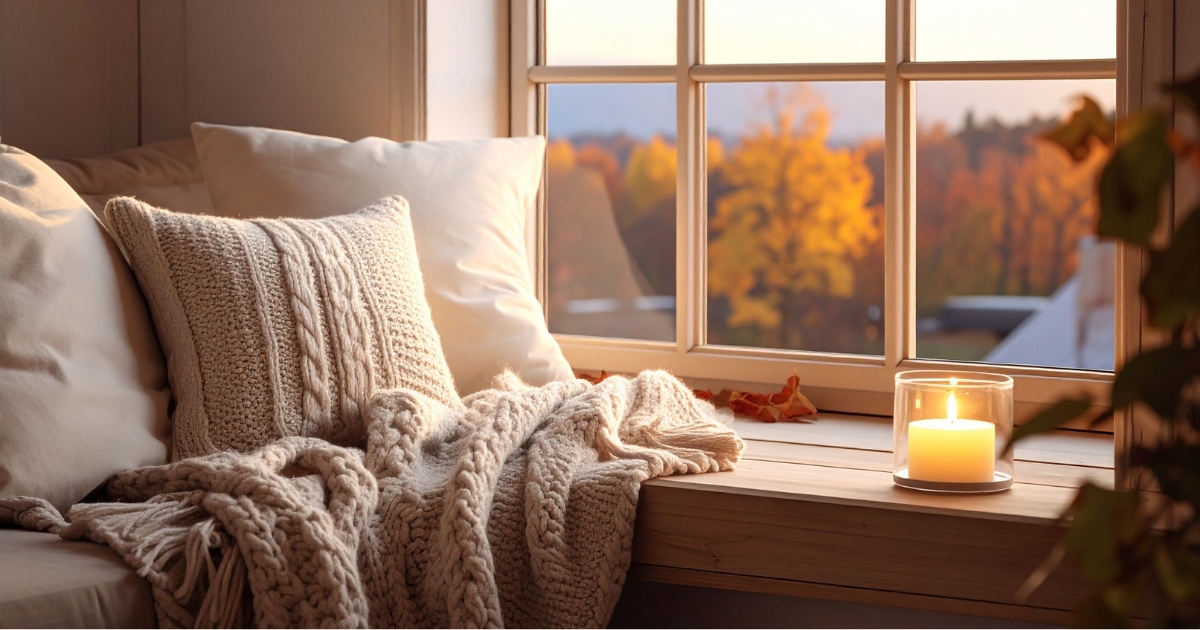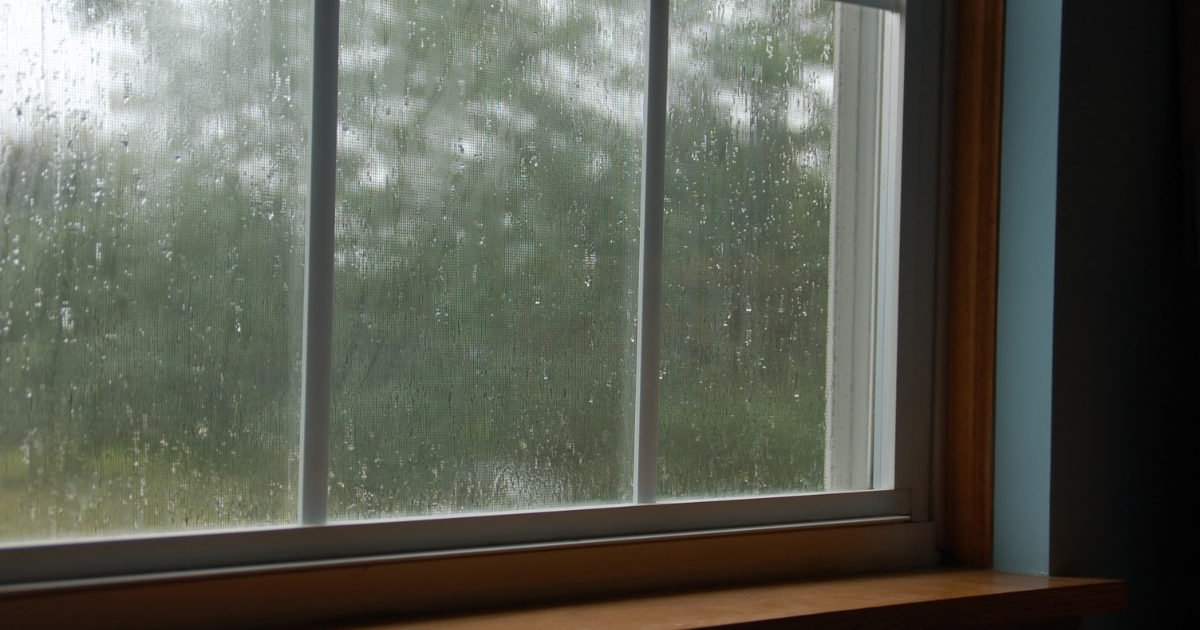Should You Replace Your Windows Before Winter?
With energy prices rising and the Scottish weather growing colder each winter, more homeowners are starting to ask the question: Should you replace your windows before winter rolls in?
The short answer is yes, especially if your current windows are more than 15 years old or showing signs of wear. Old or poorly fitted windows can make your home harder to heat, letting in draughts and allowing warm air to escape. That means higher bills, more condensation, and less comfort when you need it most.
According to the Energy Saving Trust, replacing single glazing with A-rated double glazing in a typical semi-detached home can save you up to £235 a year on heating costs (Energy Saving Trust). That figure becomes even more relevant when you consider how long Scottish winters last and how much energy is lost through inefficient windows.
With better insulation, newer glass technology, and secure modern frames, upgrading your windows before winter arrives can make a big difference to both your wallet and your day-to-day comfort.
Let’s explore the warning signs, the benefits of upgrading, and why autumn might be the perfect time to get started.
What Are the Signs You Need to Replace Your Windows?
There are some clear warning signs that your windows are no longer working efficiently. The most common is feeling a cold draught near the frame or glass, even when everything is fully closed. This usually means the seals have failed, or the glazing itself is underperforming.
Another giveaway is condensation trapped between the panes of your double-glazing. That foggy appearance isn’t just cosmetic; it signals that the insulating gas inside the sealed unit has escaped, which means it’s no longer keeping the cold out and the warmth in.
You might also notice issues with the window frames themselves. Timber frames can rot or swell over time, especially in older properties. uPVC can become brittle or cracked.
If your windows are hard to open, won’t shut securely, or let in a lot of outside noise, those are also clues that it’s time to upgrade.
Here are the most common signs it’s time to replace your windows:
- Cold draughts even when the window is closed
- Condensation or misting between double-glazing panes
- Warped, cracked, or rotting frames
- Windows that are difficult to open or close
- Increased outside noise or less sound insulation
- Rising energy bills despite no other major changes
Most double glazing lasts between 15 and 20 years. If yours are approaching that age or older, they likely won’t meet current energy-efficiency standards, and your home could be paying the price.
It could be that you chose to replace your windows and doors as part of a bigger renovation, like one of our recent returning customers. Their Glasgow property is undergoing a full refurb, and the first job to tick off was the windows and doors!
The guys fitted 7 tilt and turn UPVC windows plus a Rockdoor Ltd front door with a fixed panel above. And finished the look with full internal PVC trim for a more modern kerb appeal for a returning customer.

Is Winter a Bad Time to Replace Your Windows?
Not necessarily. Many people assume that window replacement must be done in spring or summer, but that’s more myth than fact. Professional installers are trained to work all year round, and modern fitting techniques allow for quick, one-at-a-time replacements that reduce exposure to the cold.
In fact, FENSA, the UK’s main authority on window and door installation, confirms that windows can be replaced safely and efficiently in winter. Installers use protective sheeting, sealants that work in lower temperatures, and plan jobs to minimise disruption. If you’re concerned about cold air getting in, you’ll be relieved to know that heat loss during installation is minimal.
Delaying replacement until the warmer months may seem logical, but it can leave you facing another winter of high bills and chilly rooms. If your windows are already underperforming, waiting could mean months of extra heating costs that could have been avoided.
How Long Do Double Glazed Windows Last?
The average lifespan for double glazing in the UK is between 15 and 20 years, depending on the quality of the materials, the installation, and how well it’s been maintained. After that point, wear and tear is normal. Seals begin to fail, condensation starts to appear, and insulation performance declines.
Older double glazing often lacks the features we now expect from energy-efficient windows. For example, most new windows use low-emissivity (low-E) glass, which reflects heat into your home, and gas-filled units that slow heat transfer. If your current windows were installed more than two decades ago, they probably don’t include these.
Replacing ageing units doesn’t just restore your home’s comfort. It brings your property in line with modern performance standards. That can have a knock-on effect on your energy use, monthly bills, and even the resale value of your home.
How Energy-Efficient Windows Can Help Lower Heating Costs
Energy-efficient windows are designed to trap heat inside your home, reducing the need for constant heating. This is particularly important in Scotland, where the colder climate means homes typically require more energy to stay warm through the autumn and winter months.
Modern features like low-E glass, argon-filled glazing, and warm-edge spacer bars work together to reduce heat loss. As mentioned earlier, the Energy Saving Trust estimates that upgrading from single glazing to A-rated double glazing can save up to £235 a year on heating bills for a semi-detached property.
Even homes that already have older double glazing could see improvements in performance and comfort by upgrading to newer, more efficient models.
Heat loss through windows is one of the biggest sources of wasted energy in older homes. By keeping more warmth indoors, you’ll reduce how often your boiler needs to fire up. That’s where the long-term savings come in.
Is Autumn the Ideal Time to Upgrade Your Windows?
If you’re thinking about replacing your windows, autumn might be the best time to do it. Installers tend to be more available than during the peak summer season, which means faster turnaround times and more flexible booking slots.
The weather in autumn is also typically more stable than in winter. You’re less likely to face frozen ground, strong gales, or heavy snow that could delay work. And by acting before the real cold sets in, you can enjoy the benefits of new, energy-efficient windows as soon as the temperatures drop, not after you’ve already endured weeks of cold rooms and high bills.
Another reason to act in autumn is demand. Waiting until mid-winter, when people start to realise their windows are failing, often leads to longer lead times. Getting ahead of that rush means less stress and more time to enjoy a warmer, quieter home.
Can New Windows Add Value to Your Home?
Yes. Upgrading your windows can be a smart financial move, especially if you’re thinking about selling in the next few years. Energy efficiency is a growing priority for buyers, and new windows can improve your home’s EPC rating, lower running costs, and increase kerb appeal.
According to the HomeOwners Alliance, double glazing is one of the most sought-after features for buyers in the UK. Not only does it offer comfort and savings, but it’s also a sign that the home has been well cared for. For many prospective buyers, seeing new windows can reduce doubts about future maintenance costs, making your property more appealing from the outset.
Even if you’re not planning to move, it’s reassuring to know your investment is likely to add value over time.
What Types of Windows Offer the Best Performance?
At Vantage, we supply and fit a wide range of energy-rated windows to suit all types of properties across Glasgow and the west of Scotland. Some of the most popular choices include:
- uPVC double glazing, which offers great thermal performance, minimal maintenance, and excellent value for money
- We offer a choice of A & B energy-rated glazing to help increase the thermal efficiency of your home, which will keep the winter winds at bay while keeping the elements out of your property
- A+ rated systems with modern styling, secure locking, and toughened glass that meet the highest standards for safety and efficiency
The right choice will depend on your home’s location, your budget, and what matters most to you, whether that’s reducing bills, improving security, or updating your home’s appearance. Our team is always happy to talk through your options.
Get Expert Help Choosing the Right Windows for Your Home
If your windows are underperforming or nearing the end of their lifespan, now is the time to think about upgrading. At Vantage Windows and Doors, we help homeowners across Glasgow and the rest of Scotland find the right solution for their home, from energy-efficient double glazing to full house window replacements.
We offer clear advice, free quotes, and expert installation that puts quality and customer care first. Whether you’re replacing a single unit or planning a whole-home refresh, we’ll make the process simple and stress-free.
FAQs
What is the best time of year to replace windows in Scotland?
Autumn is ideal, as it gives you time to complete the work before the colder weather sets in. Installers are often more available, and you’ll start seeing the benefits: warmer rooms and lower bills, just when you need them most.
How do I know if my double glazing is failing?
Common signs include draughts, condensation inside the glass, difficulty opening or closing windows, and higher heating costs. If your windows are over 15 years old, it’s worth getting them assessed.
Do new windows really help with energy bills?
Yes. Upgrading to A-rated double glazing can save up to £235 a year on heating bills, according to the Energy Saving Trust. The savings are even higher in older homes or those with large window areas.
Can window replacement be done in winter?
Absolutely. FENSA confirms that installers can work effectively all year round using the right tools and methods. Don’t delay if your windows are underperforming. Winter installs are quick, safe, and effective.
Categories: Double Glazing Glasgow, Windows




